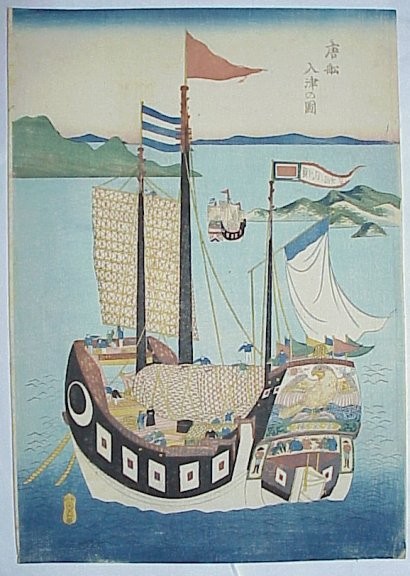Alex Haskins
PhD Candidate, Department of Political Science
“”Reimagining Modernities”- Alertness, Dignity and Foreign Learning in Sakuma Shozan’s Thought”
Thursday, March 1st, 4-6 PM
CEAS 319
Discussant: Tejas Parasher [PhD Candidate, Department of Political Science]
Please join the East Asia: Transregional Histories workshop in welcoming Alex Haskins as he presents a draft of his fourth dissertation chapter, titled “”Reimagining Modernities”- Alertness, Dignity and Foreign Learning in Sakuma Shozan’s Thought.” He has provided the following abstract:
Sakuma Shozan (佐久間 象山, 1811-1864) is perhaps best known to Western audiences for his phrase “Eastern ethics, Western technical learning” and scholars have used this catchphrase to situate Sakuma as an unsuccessful modernizer in late Edo Japan. But in doing so, these scholars have neglected the broader, dynamic process of thought that underpinned Sakuma’s turn toward embracing reform along “Western” lines. Through an analysis of Sakuma’s defining work,Reflections on My Errors, as well as his memorials to the Tokugawa shogunate and his personal correspondence, I argue in this chapter that Sakuma’s thought is better captured by what I am terming an “alertness-dignity” paradigm. In essence, Sakuma drew on legacies of Confucian learning that emphasized both deep theoretical and practically relevant learning to justify reform toward a “dignified” future ideal that was continually open to revision through an “alertness” to one’s own—and one’s enemy’s—strengths and weaknesses. By reconstructing Sakuma’s arguments, I intend to challenge readings that dismiss him as “too traditional or anti-modern” or as an “unabashed Westernizer or modernizer” and show that although his approach was overlooked by later Edo and Meiji reformers, it, perhaps ironically, offers resources for thinking beyond the linear narratives of Western modernity that eventually took hold in Japan and continue to inform its present.
Alex’s Paper can be found at the post below.
As always, first-time attendees are welcome. Light refreshments and snacks will be served.
If you have any questions or require assistance to attend, please contact Spencer Stewart at sdstewart@uchicago.edu or Robert Burgos at rburgos@uchicago.edu
